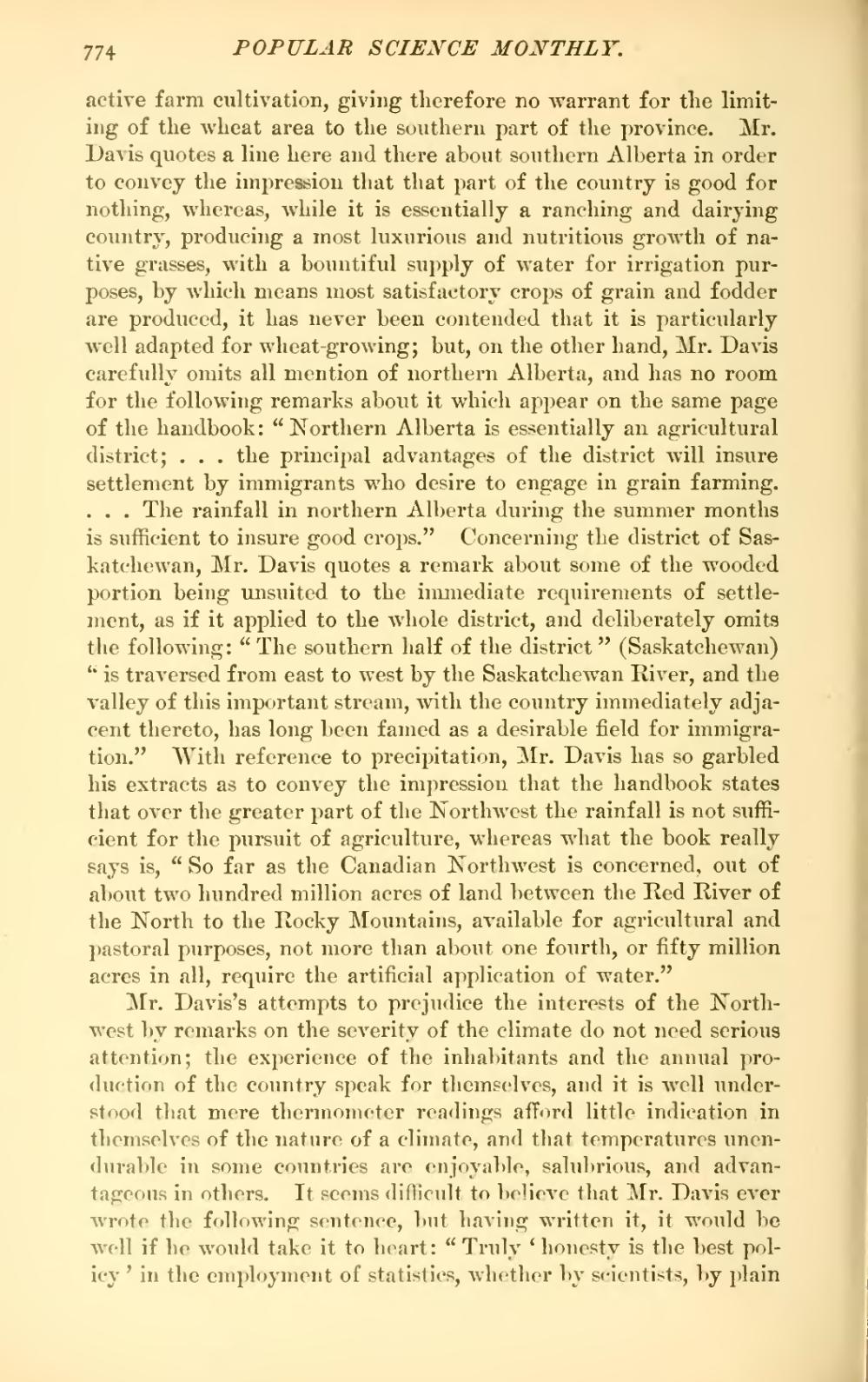active farm cultivation, giving therefore no warrant for the limiting of the wheat area to the southern part of the province. Mr. Davis quotes a line here and there about southern Alberta in order to convey the impression that that part of the country is good for nothing, whereas, while it is essentially a ranching and dairying country, producing a most luxurious and nutritious growth of native grasses, with a bountiful supply of water for irrigation purposes, by which means most satisfactory crops of grain and fodder are produced, it has never been contended that it is particularly well adapted for wheat-growing; but, on the other hand, Mr. Davis carefully omits all mention of northern Alberta, and has no room for the following remarks about it which appear on the same page of the handbook: "Northern Alberta is essentially an agricultural district; … the principal advantages of the district will insure settlement by immigrants who desire to engage in grain farming. … The rainfall in northern Alberta during the summer months is sufficient to insure good crops." Concerning the district of Saskatchewan, Mr. Davis quotes a remark about some of the wooded portion being unsuited to the immediate requirements of settlement, as if it applied to the whole district, and deliberately omits the following: "The southern half of the district" (Saskatchewan) "is traversed from east to west by the Saskatchewan River, and the valley of this important stream, with the country immediately adjacent thereto, has long been famed as a desirable field for immigration." With reference to precipitation, Mr. Davis has so garbled his extracts as to convey the impression that the handbook states that over the greater part of the Northwest the rainfall is not sufficient for the pursuit of agriculture, whereas what the book really says is, "So far as the Canadian Northwest is concerned, out of about two hundred million acres of land between the Red River of the North to the Rocky Mountains, available for agricultural and pastoral purposes, not more than about one fourth, or fifty million acres in all, require the artificial application of water."
Mr. Davis's attempts to prejudice the interests of the Northwest by remarks on the severity of the climate do not need serious attention; the experience of the inhabitants and the annual production of the country speak for themselves, and it is well understood that mere thermometer readings afford little indication in themselves of the nature of a climate, and that temperatures unendurable in some countries are enjoyable, salubrious, and advantageous in others. It seems difficult to believe that Mr. Davis ever wrote the following sentence, but having written it, it would be well if he would take it to heart: "Truly 'honesty is the best policy' in the employment of statistics, whether by scientists, by plain
